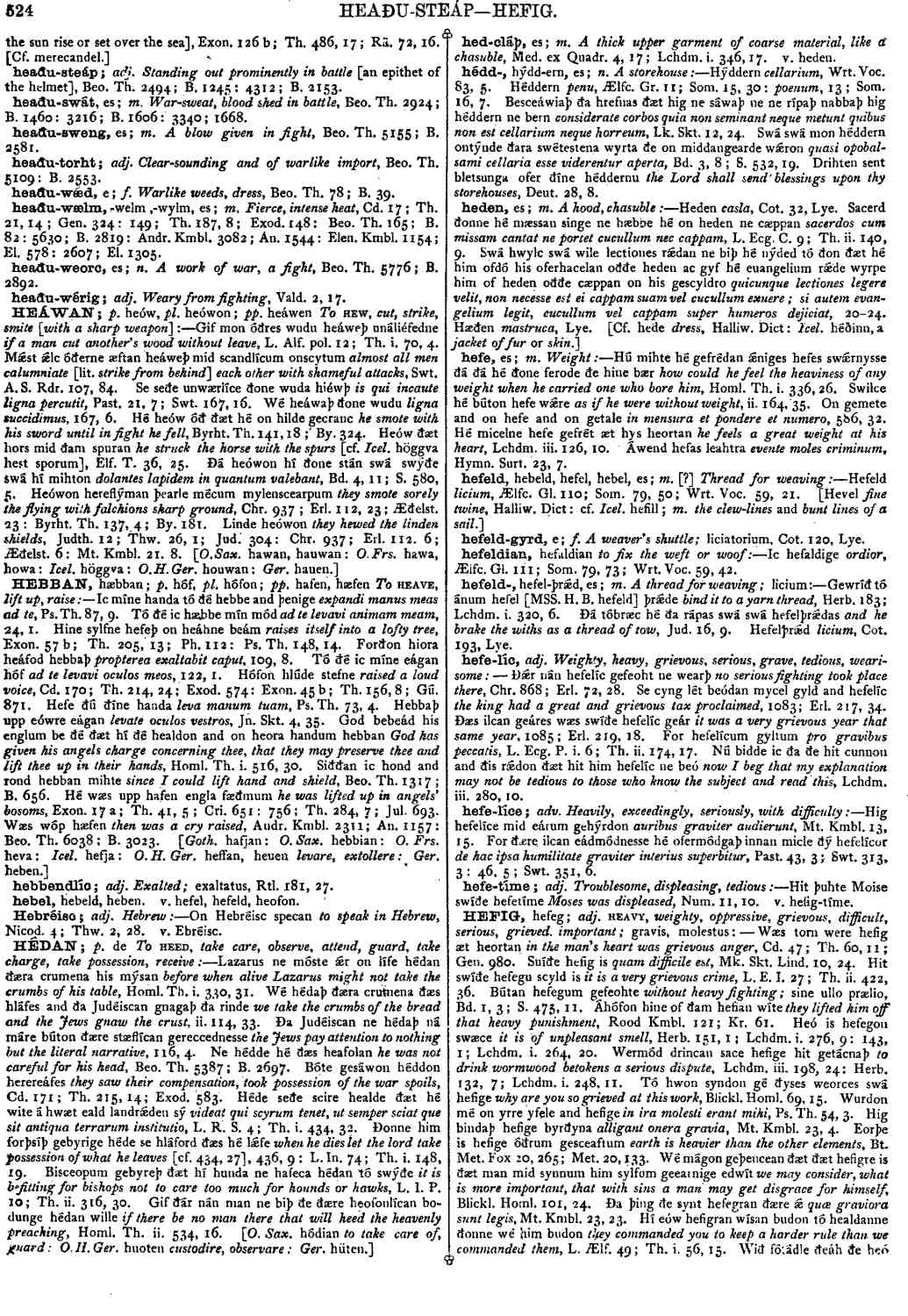HEÁWAN
- verb [ strong ]
-
Gif mon óðres wudu heáweþ unáliéfedne
if a man cut another's wood without leave,
- L. Alf. pol. 12; Th. i. 70, 4.
-
Mǽst ǽlc óðerne æftan heáweþ mid scandlícum onscytum
almost all men calumniate [lit. strike from behind] each other with shameful attacks,
- Swt. A. S. Rdr. 107, 84.
-
Se seðe unwærlíce ðone wuda hiéwþ
is qui incaute ligna percutit,
- Past. 21, 7; Swt. 167, 16.
-
Wé heáwaþ ðone wudu
ligna succidimus,
- 167, 6.
-
Hé heów oð ðæt hé on hilde gecranc
he smote with his sword until in fight he fell,
- Byrht. Th. 141, 18; By. 324.
-
Heów ðæt hors mid ðam spuran he struck the horse with the spurs [cf.
Icel.
höggva hest sporum], Elf. T. 36, 25. -
Ðá heówon hí ðone stán swá swýðe swá hí mihton
dolantes lapidem in quantum valebant,
- Bd. 4, 11; S. 580, 5.
-
Heówon hereflýman þearle mécum mylenscearpum
they smote sorely the flying with falchions sharp ground,
- Chr. 937; Erl. 112, 23; Æðelst. 23: Byrht. Th. 137, 4; By.
181.
-
Linde heówon
they hewed the linden shields,
- Judth. 12; Thw. 26, 1; Jud: 304: Chr. 937; Erl. 112. 6; Æðelst. 6:
Mt. Kmbl. 21. 8.
Bosworth, Joseph. “HEÁWAN.” In An Anglo-Saxon Dictionary Online, edited by Thomas Northcote Toller, Christ Sean, and Ondřej Tichy. Prague: Faculty of Arts, Charles University, 2014. https://bosworthtoller.com/18569.
Checked: 0